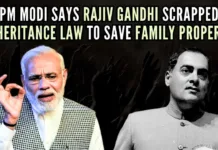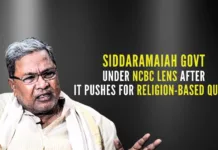
[dropcap color=”#008040″ boxed=”yes” boxed_radius=”8px” class=”” id=””]I[/dropcap]t is often said that smart politicians have a better sense of the pulse of people than ordinary ones. If our Chief Minister, who is also the Finance Minister, is indeed a smart political leader, he would quite easily sense that voter power has moved away from farmers to young India. Today the median voter is no more a farmer in the hinterland but an unskilled or semi-skilled youngster looking to migrate to a nearby City to earn a livelihood and provide for his or her family. And in the upcoming budget which will be presented on the 15th of March and in what is being deemed as an election year budget, it is crucial for Mr. Siddaramiah to focus on the two most important issues that matter to young voters – Urbanization and Job Creation.
While elections are held to elect members of Corporations who in turn elect a Mayor from the majority party for a one year period for each of the five years, administrative powers largely rest with the state government which diligently exercises it through the bureaucracy.
Karnataka, like the rest of India, is urbanizing rapidly. More than one and half lakh people migrate to Bengaluru every year and in a similar proportion to various other cities across the state. This has overwhelmed all the City and Town Municipal Corporations which are unable to provide basic services for want of resources while also lacking in capacity. And most voters are convinced that the myriad problems afflicting Cities – clearing garbage, providing drinking water, streamlining traffic, protecting environment, solving power crisis, fixing schools and hospitals, building affordable housing and redeveloping slums – can only be solved if administration is decentralized and fiscal powers granted to local government and authorities.
Municipalities across the state are crying for administrative and fiscal decentralization. In the current system there is an asymmetry between political, administrative and fiscal responsibilities. While elections are held to elect members of Corporations who in turn elect a Mayor from the majority party for a one year period for each of the five years, administrative powers largely rest with the state government which diligently exercises it through the bureaucracy. Moreover, local administrations are starved of funds to provide basic services to citizens. Hence the Finance Minister must delineate a vision supplemented by an implementable plan for self governance of City and Town Municipal Corporations.
A plan of action must include structural reforms in the way Corporations are administered and financed. Administrative reforms must include a direct election of Mayor and Council for a five year term. The state government must also ensure that it transfers all the planning and service departments associated with Cities and Towns to come directly under Mayoral control. Fiscal reforms must include a legally binding yearly transfer and arming local governments with sufficient powers to enhance revenue raising capabilities by allowing them to impose a surcharge on road tax, professional tax, petrol and diesel tax.
[dropcap color=”#008040″ boxed=”yes” boxed_radius=”8px” class=”” id=””]T[/dropcap]o boost employment opportunities, government must sow the seeds for creation of more Peenya’s than Information Technology Parks. Outsized swathe of land reserved for multi-national corporations along with tax holidays is an anathema to job creation. Economic theory suggests that large corporations give a boost to GDP growth, per capita income and earn government revenues that can in turn be ploughed back into building infrastructure and incur expenditure on social development. But according to a 2013 Credit Suisse study, the formal sector contribution to India’s GDP’s is only about 15% while those of listed companies are estimated to be even lower at around 5%. The study goes on to conclude that it is the informal sector that creates nine out of ten jobs with close to 50% contribution to GDP. Hence it is imperative for the state government to announce a large package that can boost Micro and Medium enterprises in the upcoming budget that can result in large scale job creation for semi-skilled as well a skilled work force.
The Congress government in Karnataka must realize that more of the same from past years will not win the hearts and minds of young voters.
Bangalore’s Peenya industrial area offers an excellent model that can easily be replicated in other parts of the state like Hyderabad-Karnataka and Mumbai-Karnataka regions. The 4,000 small and medium scale companies in Peenya occupy around 500 acres of land and employ more than seven lakh unskilled and semi-skilled workers. By using public procurement to spur investment and offering incentives like land at a reasonable cost, low cost loans along with tax benefits to local entrepreneurs, the state government can facilitate the development of new industrial townships in other parts of the state. Developing much needed infrastructure for companies to be competitive in those regions must also be an integral part of the package.
The Congress government in Karnataka must realize that more of the same from past years will not win the hearts and minds of young voters. It must steer away from populism and reroute funds for all-round development of the state. As the median voter theorem suggests politicians who stray far away from the median voter preference is bound to lose office. The Finance Minister not only risks losing a generation of young voters but also diminishes the prospects of Congress re-election in 2018 if he fails to address issues that are important to young voters.
- Biggest Economic Accomplishment – Ending Crony Capitalism - December 13, 2019
- Mr. Rahul Gandhi must first become a Chief Minister - April 4, 2019
- How Congress lost Karnataka - May 15, 2018











I chellenge the huge retired, talented and self sufficient population in every city, town and region, in the richest traditions prescribed by our vedas, to selflessly work and create a tsunami of correct opinions. They can be the beacon of our society and public mind. May God !
Well-written article…thank you Mr. Krishnakumar. The problem is, however, that there is a big gap between ideas like these and those that are implemented in reality. What is needed is for thinking people like you to be directly involved in the budget planning process in Karnataka. If there is a way for someone from the general public to participate, then that way must be exploited to the fullest to make your ideas into a reality. Writing a good article is a lot easier than actually translating them into implementation. I suppose the same suggestion applies to myself too…and therein lies the rub. Many of us are caught up in full-time responsibilities with family and work and have little time to devote to these important pursuits.